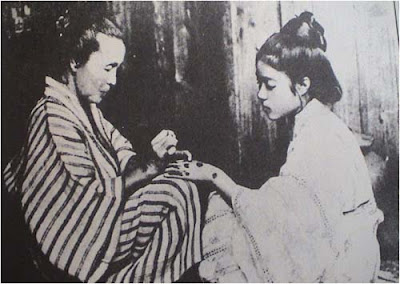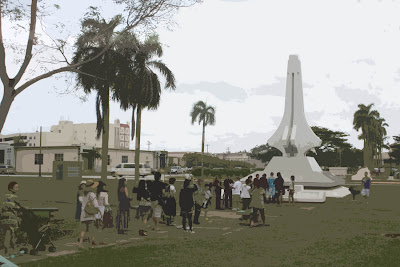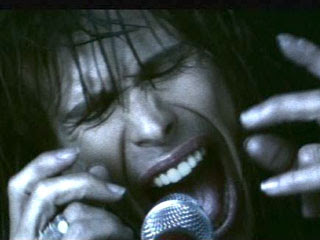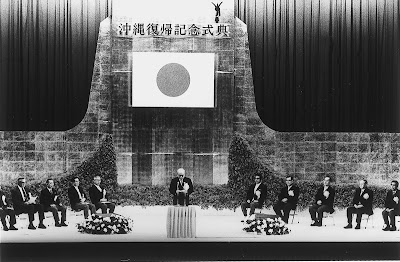Occupied Okinawa #12: Utaki

After several days of lecturing, presenting and meeting with people for our Okinawa trip, Ed Alvarez (the Director of Guam's Commission on Decolonization) and I were given a rest day. One of the organizers of our trip Yasukasu Matsuhima, a professor of economics at Ryukyu University in Kyoto took us on a tour of various parts of central Okinawa. One of the highlights of the day was when we were taken to a string of islands to the Eastern coast of Okinawa all connected by bridges. On one of the islands Hamahiga, we visited an utaki, a sacred place where one would pray to spirits for various things ranging from having a safe journey, to increasing the harvest for a season, to helping increase the chances of a woman getting pregnant. Women played a significant role in this aspect of Okinawan religion as often the chosen women alone, or uta would be able to visit these places. In the area around Shuri Castle in Naha, there was an utaki which eventually became a private sacred place f...










